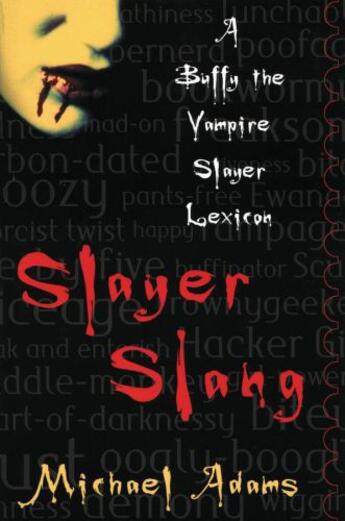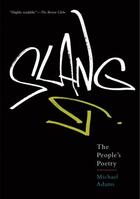-
Nombre de pages : (-)
-
Collection :
(-)
-
Genre :
(-)
-
Thème :
Non attribué
-
Prix littéraire(s) :
(-)
Résumé:
In its seven years on television, Buffy the Vampire Slayer earned critical acclaim and a massive cult following among teen viewers. One of the most distinguishing features of the show is the innovative way its writers play with language--fabricating new words, morphing existing ones, and... Voir plus
In its seven years on television, Buffy the Vampire Slayer earned critical acclaim and a massive cult following among teen viewers. One of the most distinguishing features of the show is the innovative way its writers play with language--fabricating new words, morphing existing ones, and throwing usage on its head. The result has been a strikingly resonant lexicon that reflects the power of both youth culture and television in the evolution of American slang. Using the show to illustrate how new slang is formed, transformed, and transmitted, Slayer Slang is one of those rare books that combines a serious explanation of a pop culture phenomenon with an engrossing read for Buffy fans, language mavens, and pop culture critics. Noted linguist Michael Adams offers a synopsis of the program's history, an essay on the nature and evolution of the show's language, and a detailed glossary of slayer slang, annotated with actual dialogue. Introduced by Jane Espenson, one of the show's most inventive writers (and herself a linguist), Slayer Slang offers a quintessential example of contemporary youth culture serving as a vehicle for slang.
Donner votre avis















